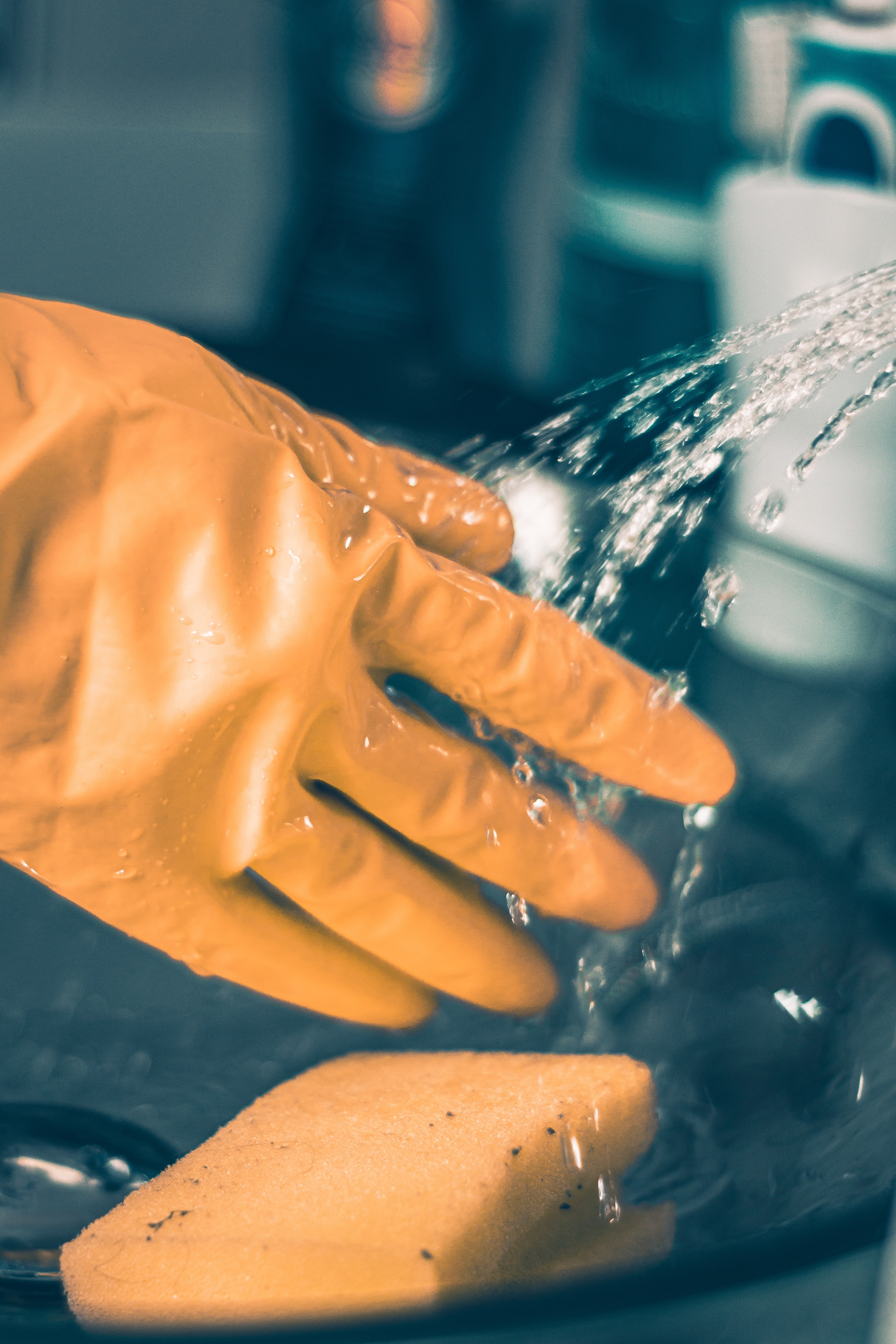Chemical exposure in the workplace can lead to injuries and health issues. Employees who work with hazardous chemicals must take every precaution to protect themselves from chemical exposure. One essential tool for workplace safety is chemical-resistant gloves.
At SAMS Solutions, we understand the importance of workplace safety, and we are proud to offer our brand of chemical-resistant gloves, Gorilla. Gorilla gloves are to protect workers from exposure to hazardous chemicals. They are from latex, nitrile, neoprene, PVC, and butyl. The type of glove material used depends on the chemical and the level of protection required.
Choosing the Right Chemical-Resistant Gloves
When selecting chemical-resistant gloves, it's essential to consider the specific chemicals being handled. Different glove materials provide different levels of resistance to various chemicals. For example, latex gloves are suitable for water-based solutions, while nitrile gloves are best for handling oils and solvents.
It's also important to consider the level of protection required. Gorilla gloves come in different thicknesses and lengths, with longer gloves providing better coverage and protection. However, thicker gloves may also limit dexterity, making it harder to perform tasks.
Other factors to consider when choosing chemical-resistant gloves include comfort, durability, cost, and compliance with safety standards such as EN 374-1, EN 374-4, and EN 374-5.
- EN 374 is a European standard that specifies the requirements for gloves that protect against chemical and microorganism hazards.
- EN 374-1: This part of the standard specifies the requirements and testing methods for gloves that protect against chemical hazards and microorganisms.
- EN 374-4: This part of the standard specifies the requirements and testing methods for gloves that protect against degradation caused by chemical exposure.
- EN 374-5: This part of the standard specifies the requirements and testing methods for gloves that protect against penetration by microorganisms.
Gorilla gloves comply with these standards, passing a series of tests to ensure they offer adequate protection against permeation, degradation, and penetration by chemicals and microorganisms.
Protection against Microorganisms
EN 374-5 is a European standard that outlines the requirements and testing methods for protective gloves that are intended to be used in chemical and microorganism environments. Specifically, it sets out the standards for gloves that offer protection against microorganisms, including viruses, bacteria, and fungi. The standard covers both natural rubber and synthetic rubber gloves, as well as gloves made from other materials such as neoprene, nitrile, and PVC.
The testing process for gloves under EN 374-5 involves measuring the permeation resistance of the glove material to a range of different chemicals. The glove is tested against a range of chemicals, including sodium hydroxide, sulfuric acid, and hydrogen peroxide, among others, to determine the level of permeation resistance.
The standard also sets out requirements for the labeling of gloves, including the marking of the gloves with the CE logo, as well as information about the type of protection offered and the relevant European standard number.
Benefits of Gorilla Chemical Resistant Gloves
Gorilla chemical-resistant gloves provide numerous benefits for workplace safety. Some of the most significant benefits include:
- Protection from Chemical Exposure
Gorilla chemical-resistant gloves are to protect workers from chemical exposure. They provide a barrier between the skin and hazardous chemicals, reducing the risk of chemical burns, skin irritation, and other health issues.
- Improved Workplace Safety
Gorilla chemical-resistant gloves are an essential tool for workplace safety. They help prevent accidents and injuries caused by chemical exposure, reducing the risk of workers' compensation claims and lawsuits.
- Enhanced Productivity
When workers are protected from chemical exposure, they can perform their duties more efficiently. Gorilla chemical-resistant gloves allow workers to handle hazardous chemicals with confidence, improving productivity and reducing the risk of errors caused by discomfort or distraction.
- Compliance with Safety Standards
Using Gorilla chemical-resistant gloves that comply with safety standards such as EN 374-1, EN 374-4, and EN 374-5 helps ensure workplace safety and avoids costly penalties and fines. Compliance with safety standards also demonstrates a commitment to protecting workers and creating a safe working environment.
SAMS Solutions: Chemical-resistant gloves provider at workplace safety
Leading provider of workplace safety solutions that help organizations ensure the safety and well-being of their employees. With a focus on innovation, quality, and customer satisfaction, SAMS Solutions has been providing cutting-edge safety products and services for several years.
SAMS Solutions takes a proactive approach to workplace safety, helping clients prevent accidents and injuries before they occur. Their range of chemical-resistant gloves is designed to meet the highest safety standards and is backed by comprehensive warranties and technical support.
Conclusion
Gorilla chemical-resistant gloves, available through SAMS Solutions, are essential for workplace safety. They provide a barrier between the skin and hazardous chemicals, reducing the risk of chemical exposure and associated health issues.
Check Out Our Most Selling Products

